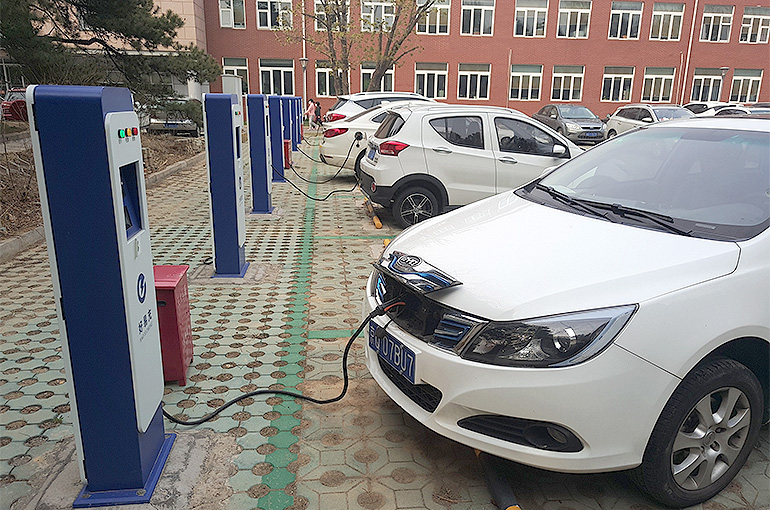 WM, Aiways, Other Chinese Second-Tier EV Makers Struggle Among Fierce Competition
WM, Aiways, Other Chinese Second-Tier EV Makers Struggle Among Fierce Competition(Yicai Global) May 19 -- China’s second-tier electric vehicle makers such as WM Motor, Aiways Holdings, and Enovate Motors have variously halted production, missed salary payments, and closed showrooms this year, as the country’s EV sector enters a new extinction wave.
All of WM's 4S stores in Haikou, Hainan province, have closed since last week, and local users cannot access after-sales services, according to reports. Before that, he Shanghai-based carmaker was also the subject of online rumors about tight supply chain finance, wage cuts, and production stoppages.
Other EV makers have also had operational difficulties in 2023, with Enovate halting output, Aiways postponing paying wages for three months, and Letin Auto filing for bankruptcy protection.
China's new energy vehicle market has burgeoned in the past few years, and annual sales of first-tier auto startups such as Nio, Xpeng Motors, Li Auto, and Hozon Auto, soared past 100,000 units each last year.
EV makers facing difficulties did not grasp the development opportunities brought by the rapid growth in demand, a former Aiways employee told Yicai Global. The price war in China’s auto market, the world’s largest, unleashed by industry giants Tesla and BYD at the start of the year, has sped up their decline, he added.
“Compared with industry leaders including Li Auto, Nio, Xpeng, Hozon, and Leap Motors, WM and Aiways did not successfully open up the market, and their operations are almost fully dependent on external financing,” the person noted. “Once financing channels become bumpier, operational crises will follow.”
Of China's EV makers only Beijing-based Li Auto made a profit last quarter, while Nio, Xpeng, and Leap reported significant losses, but they can still sell thousands, even tens of thousands of vehicles every month and bank hundreds of millions of Chinese yuan (equivalent to tens of millions of US dollars). And with cash reserves from previous financing, they can continue normal operations for a certain period of time.
Financial issues have cut the survival chances of second-tier automakers. According to a report by Ping An Securities, an electric car company needs to have CNY80 billion (USD11.4 billion) in annual revenue to break even. Based on prices of between CNY200,000 and CNY400,000 (USD28,420 and USD56,840) for cars made by EV startups, they need to sell from 200,000 to 400,000 a year.
WM, Aiways, and Enovate sell on average around 1,000 units annually, with the numbers further declining this year because of intense market competition and internal issues, the former Aiways staffer noted.
Tencent-backed Aiways sold 536 autos in the first three months of this year, Enovate only 237, and WM did not sell any, according to data from China Passenger Car Association. In comparison, their quarterly sales were less than Li Auto's weekly figures.
China had 300 new carmakers around 2017, but today only five of them -- Nio, Xpeng, Li Auto, Leap, and Hozon -- have stable sales figures. With the exception of Li Auto, the other startups are yet to turn a profit, and they are burning cash.
The shift by traditional carmakers to electric has started, with market leaders having strong research and development, supply chains, manufacturing, and channel capabilities, an executive of an EV startup told Yicai Global. Once they complete the shift, those startups that are not prepared will face a crushing blow.
According to industry insiders, China's auto market will enter a new extinction wave for carmakers this year, and some leading startups may be killed off.
Editor: Tang Shihua, Martin Kadiev